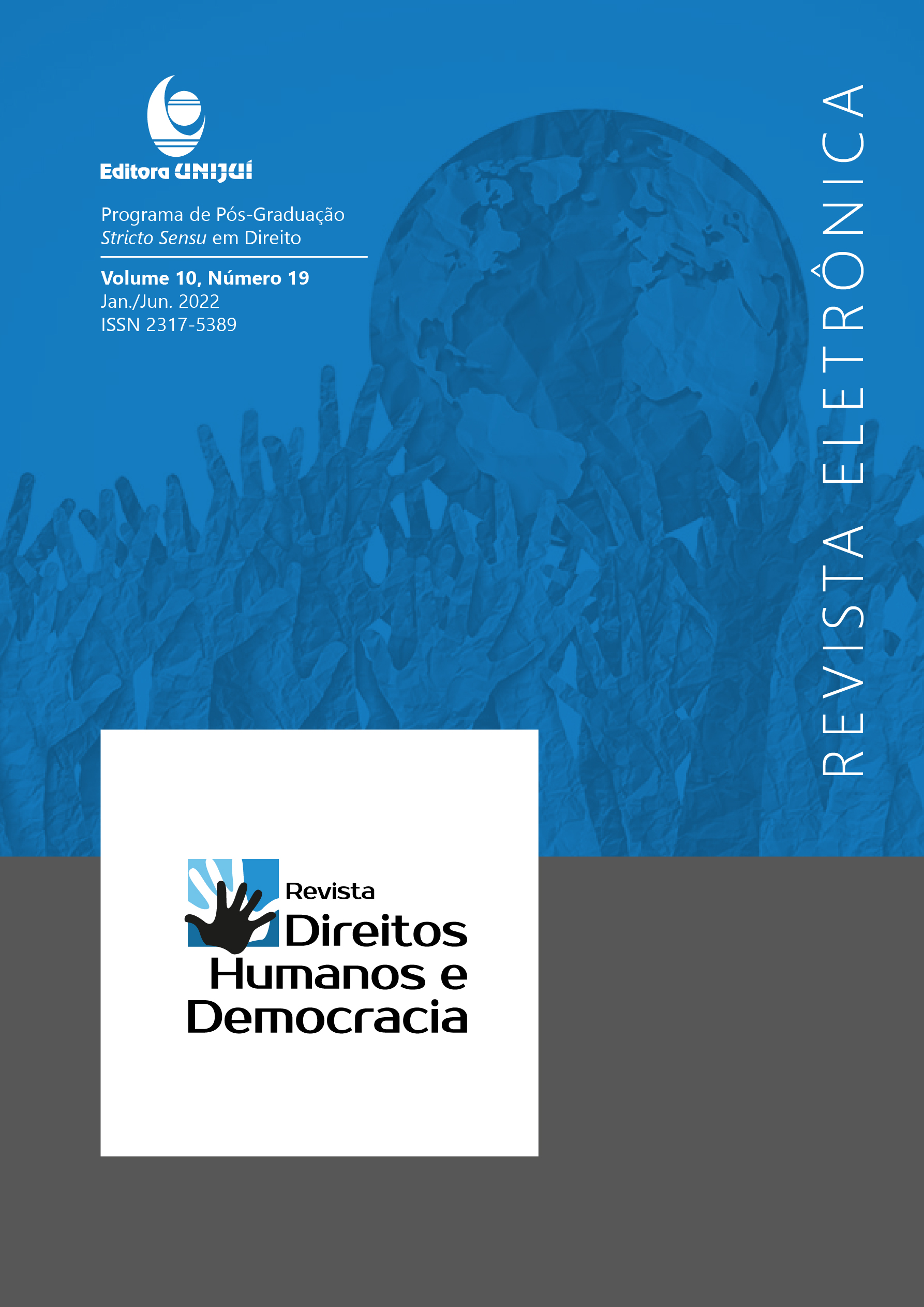Assuring high-quality public health to the transgender population as a way to implement the fundamental rights provided within the Federal Constitution of 1988
DOI:
https://doi.org/10.21527/2317-5389.2022.19.12583Abstract
This article aims to identify the increase in the leading role of the State regarding the implementation of public policies that solidify fundamental rights and securities provided within the Federal Constitution of 1988, especially when it comes to an excluded minority such as the transgender population of the LGBTQIA+ community. As we live in a heteronormative society, this means that a good amount of people who do not fit the standards imposed by such society is being excluded from the fundamental rights intended by the legal system, violating the Democratic Rule of Law. The reasearch method used was deductive reasoning, as the definitions and concepts of several correlated areas with common points of intersection are used. From the perspective of Articles V and VI of the Federal Constitution and the social interpretation of the subject in discussion, it can be concluded that this community's access to high-quality health care could decrease the inequality that is embedded within society and reduce the gap in all aspects of life. That is, receiving adequate treatment through quality and professional medical care is a way to allow this community, as they live on the margins of society, the dignity ensured by the Federal Constituition.
Keywords: Right to Healthcare. Transgender Population. Minority Rights. Social State. Fundamental Rights.
Downloads
Published
How to Cite
Issue
Section
License
By publishing in the Revista Direitos Humanos e Democracia, authors agree to the following terms:
Articles are licensed under the Creative Commons Atribuição 4.0 Internacional (CC BY 4.0), which allows:
Share — copy and redistribute the material in any medium or format;
Adapt — remix, transform, and build upon the material for any purpose, including commercial use.
These permissions are irrevocable, provided the following terms are respected:
Attribution — authors must be properly credited, with a link to the license and indication of any modifications made;
No additional restrictions — no legal or technological measures may be applied that restrict the use permitted by the license.
Notices:
The license does not apply to elements in the public domain or covered by legal exceptions.
The license does not grant all rights required for specific uses (e.g., image rights, privacy, or moral rights).
The journal is not responsible for opinions expressed in the articles, which remain the sole responsibility of the authors. The Editor, with the support of the Editorial Committee, reserves the right to suggest or request modifications when necessary.
Only original scientific articles presenting research results of interest, not previously published or simultaneously submitted to another journal with the same purpose, will be accepted.
References to trademarks or specific products are intended solely for identification purposes and do not imply any promotional endorsement by the authors or the journal.
License Agreement: Authors retain copyright over their articles and grant the Revista Direitos Humanos e Democracia the right of first publication.













